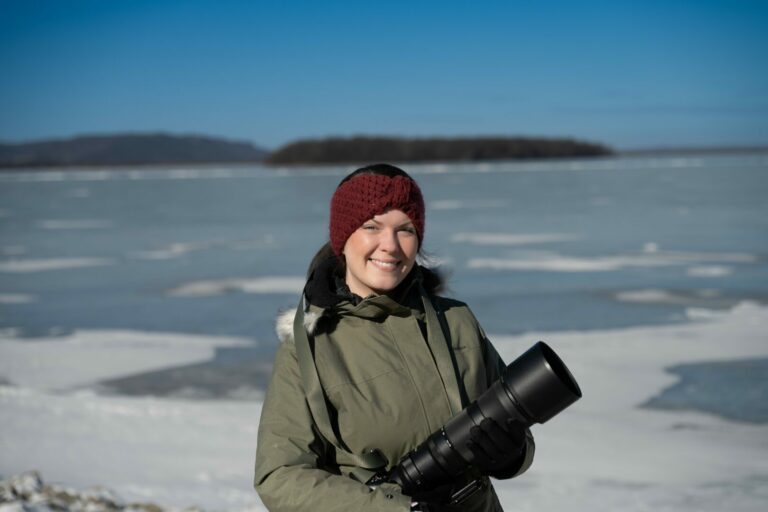We recently connected with Nathan Ellis and have shared our conversation below.
Hi Nathan, thanks for joining us today. Let’s jump right into something we’re very focused on here – improving our ability to make decisions. Everyday, we’re faced with decisions that can impact the future of our careers, businesses, relationships and more and so one of the most impactful areas for personal development, in our view, is decision-making. Can you talk to us about how you developed or improved your decision-making skills?
I’ve always been very priority-focused and knowing my priorities has been invaluable on my journey thus far, as they’ve helped me make decisions, both in the moment and long term, that have kept me on-course in life. My decision-making skills were developed and refined during my training and service as a military officer and aviator — in combat and in the cockpit, good decision-making is crucial for survival. It essentially boils down to understanding what your priorities are at any given moment — in the cockpit, the priorities are always 1.) Aviate (fly the aircraft first), 2) Navigate (synchronize the aircraft per your overall route) and 3.) Communicate (relay important / required information to your crew and ATC. This all essentially boils down to the overall priority of survival — if you don’t fly the aircraft first, you’re skipping the most important step that allows you to do everything else. For example, in a helicopter, if the engine fails, you must perform an autorotation, which is essentially a controlled, high-speed fall — and it must be initiated within seconds. Imagine this happening and, as the pilot, you don’t 1.) Aviate (fly the aircraft) first — say you decide to tell ATC you’ve just had an engine failure — suddenly the aircraft is outside parameters to recover. Another example would be combat — when stress levels peak, your world becomes very, very small. It’s literally step-by-step — what do I need to do next to survive and, if you’re a leader, what do I need to tell my team to do next in order to survive?
I realize these are extreme examples and most things in life are not as obvious to determine, but I’ve learned that, no matter what you’re facing, if you can determine what your priorities are and communicate them clearly to yourself and others, it helps break up the process towards your end goals in a more manageable and understandable way. A more long-term, personal example of this is my process to become an Army Aviator — a challenging process which was never guaranteed, but once I decided on my path and knew I was medically qualified (first priority), I knew my follow-on priorities were as follows: 1.) Go to a college with an ROTC program, 2.) Get the best grades I can and perform as well as I can in all aspects of ROTC to make myself more competitive for selection and 3.) Understand I was competing on a national level for a highly selective and limited flight slot — which helped set the tone and intensity for how I approached my priorities every day.
These priorities made it very easy for me to say “no thanks” to those keg parties during the week, when I knew I had an exam to study for and made it easy for me to find a healthy routine during my college experience where, when I did let loose, it was always in celebration knowing I’d accomplished what I needed to for my ultimate goal. Balance is important — don’t forget to celebrate and listen to what your heart is telling you in any given moment.
This ultimately paid off when I found out, not only was I selected for flight training, but I was the number-one cadet in the country selected, which meant I got to start right away — and, at the end of the day, I enjoyed the ride leading up to that moment, although some days were more challenging than others.
I have many examples of how I’ve learned and developed my decision-making skills, but it really all boils down to 1.) knowing your end goal or next goal and 2.) breaking down your priorities in the present moment.
Thanks for sharing that. So, before we get any further into our conversation, can you tell our readers a bit about yourself and what you’re working on?
I’m a former Army Captain, military aviator and combat veteran who believes my experiences in service have played an important role in my development as an artist. I received an MFA in production from USC, am an Academy Nicholl Fellowships top 50 semifinalist and award-winning writer/director with a passion for character-driven stories about relevant and meaningful subject matter.
People often ask how I went from being a military pilot to a filmmaker, but it’s actually the other way around — filmmaking has always been the closest medium to my creative interests, but I’ve always had an interest in aviation and felt becoming a military pilot first would 1.) accelerate my maturity and boost my overall life experience, 2.) give me an intense goal to keep me focused while in school and 3.) help me hold up a mirror to myself as I matured that would allow me to constantly assess where I might be making excuses for any short-comings I experienced (the military is an excellent resource for individual self-assessment).
Some might find it surprising, but I’m not very patriotic, nor do I want war (most people in the military don’t). My decision to serve was based on the belief that I would be surrounded by selfless people who possessed strong integrity and the challenges that come with military service would help me become the best version of myself. After fulfilling my seven-year service obligation, including one, year-long combat deployment to Afghanistan, I’m happy to say I found just that and have grown immensely through those experiences.
As a filmmaker, I care deeply about “getting real” with my characters and stories, although I don’t seek to express military-centric perspectives. Instead, I prefer to delve into the “human experience” of life as I’ve seen and experienced it through both myself and others. For example, my wife, Kim, a former teacher and school counselor who was recently featured here, comes from a very tumultuous background and has overcome so much in her life — I love to weave in heartfelt aspects of her character into fictional characters to help reinforce grounded and relatable subject matter that ultimately connects with people. I also love female protagonists — I think it’s because I grew up watching Ellen Ripley (Aliens Franchise) and loved the idea that she used her intellect and survival skills to defeat the aliens, instead of brute force (for the most part).
Currently, I’ve got a couple feature-length screenplays packed with top talent that are close to production — one is about the first Asian-American woman to enter US military service and the other a semi-autobiographical thriller about my worst day in Afghanistan — these have taken years to assemble and were fortunate enough to survive the pandemic and industry strikes. I also have a science-fiction “animated” series, “OVERCLOCKED,” which I made during the pandemic just for fun, which has gone viral and has been a fun way for me to “create without boundaries.” We’ll see where that goes, but it’s been fun so far.
At the end of the day, I simply want to make a living doing what I love — creating and supporting artistic projects which both entertain and enlighten people all around the world. No matter how much effort I put into my projects on any given day, I always wake up the next day with a full-tank of creativity ready to go. The tricky part is knowing when and where to invest that energy.
If you had to pick three qualities that are most important to develop, which three would you say matter most?
Whether we’re talking about my journey as a filmmaker or my journey as a military aviator, I can say with confidence that the three most important qualities for anyone going after a goal are 1.) Proven Ability (can you do the thing you say you want to do and have you demonstrated to yourself and others that it’s possible), 2.) Exposure (do you take risks and put yourself out there to connect with others in the world who might resonate / recognize your talents) and 3.) Perseverance (do you wake up everyday, no matter how hard things might seem, and still love what you’re going for on a fundamental level?)
These are the three essentials I’ve come to realize on my journey thus far, both in hindsight and moving forward.
Okay, so before we go we always love to ask if you are looking for folks to partner or collaborate with?
I’ve always felt a solid and collaborative team is always more effective than any individual, although I do feel good team members are always well-versed in their own individual strengths (and understand their weaknesses too).
I’m always looking to connect with other creatives who might share similar interests or who I feel have demonstrated unique talent that I want to help foster and grow.
I’ve been on both ends of this, where I’ve been mentored by industry veterans who believed in me, been part of talented creative teams to develop a central project and mentored up-and-coming artists who needed guidance, perspective and encouragement.
Currently, I’m most interested in finding other people interested in filmmaking endeavors in terms of development and production on lower budget, character-driven indie features in the drama, sci-fi and horror realms.
Essentially, I’m in-between projects at the moment, as some of my work is already on the road to production and I’m really looking for that next “big project” to immerse myself in.
Teamwork makes the dream work!
Contact Info:
- Website: https://pro.imdb.com/name/nm5668424/overview
- Instagram: https://www.instagram.com/natescottellis/
- Facebook: https://www.facebook.com/nathan.ellis.96
- Linkedin: https://www.linkedin.com/in/nathan-ellis-366b0154/
- Youtube: https://www.youtube.com/@Reso-Nate
- Other: https://www.youtube.com/@EE-STUDIOS












